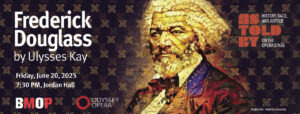There is something extremely gratifying about discovering unsung films fortuitously. Scrap has been one such surprise for me—a small, independent American film with a big heart. What’s more, it’s powered by a woman—Vivian Kerr—who hasn’t just written, directed and produced the film, but also stepped in as the lead.
Kerr plays a single mom Beth Anderson, who has recently lost two essential securities in life—her job and home. Having left her five-year-old daughter Birdy (Julianna Layne) in the care of her brother Ben (Anthony Rapp), she is living in her car, desperately hunting for a job. The fall semester tuition fee for Birdy hasn’t been paid and to make matters worse, her toxic ex and father of Birdy, Joshua (Brad Schmidt) is being manipulative, wanting Beth and Birdy back in his life yet unwilling to make a definite commitment.

Despite seeming calm and collected, Ben has his own challenges to deal with. The best-selling author is being paid a handsome advance for three more in the series of books but the work after his own heart—a biography of jazz singer Billie Holiday—has no takers. He and his wife Stacy (Lana Parrilla) are trying hard for her to conceive through IVF.
And his relationship with his sibling, who he sacrificed a lot to bring up, is not at its best. While Stacy refers to Beth as a blood-sucking vampire with whom boundaries have to be set, he himself keeps reminding his sister about her responsibility towards her daughter. Life has to be about looking after the child’s needs rather than her own whims and fancies.
With shots of the iconic elements of the Los Angeles landscape—the palms, Beverly Hills and Hollywood signage, Melrose Avenue and Griffith Observatory—and the ubiquitous phenomenon of homelessness, the film very obviously locates itself in a specific place. However, it’s a story that’d be relatable in any corner of the world. Most so for the widespread economic downturn and its impact on individuals and relationships, families and societies at large.
In fact, the LA backdrop notwithstanding, most of the film plays out in the interiors—car, homes, offices, bars, restaurants, skating rink, school, bookshop, hotel, mall—and is driven by intimate interactions and life-like conversations between the characters rather than high drama. The narrative is well-anchored in heartfelt, grounded performances.There’s something poignant about Beth’s pretend life.
She doesn’t just make those close to her believe in it but appears to accept it herself. It’s the comfort derived from a stranger Marcus (Khleo Thomas) that makes her admit to being laid off in the company's downsizing. Despite the difficulties Beth must contend with there are gentle moments of humour that make one smile through her never-ending struggles.
She might be dressing up and getting ready in a public washroom but the attire for the interview(s) is perfect, right down to the Calvin Klein shoes—mistaken for Louboutin by a prospective employer. Then there’s the online retail therapy that she indulges in with a vengeance, as though to compensate for the many gaping holes in her life.Essentially, it’s all about the dynamics of a sibling relationship.
There might be a growing misunderstanding between them, they might hurt each other, and in the process themselves, the house they grew up in might be getting razed. But from these seeming ashes, their love and care for each other will rise and grow anew. Ben helps Beth get the vital focus in her career and as a mom, Beth helps Ben realize the pointlessness in trying to bring a baby to this world.
It also helps Stacy reconcile with surrogacy or adoption and mend her ties with Beth. There’s hope in this bittersweet film. That all won’t be lost, that the messed-up relations will resolve, the scraps and squabbles will lead to harmony, and happiness will come to prevail.
.















